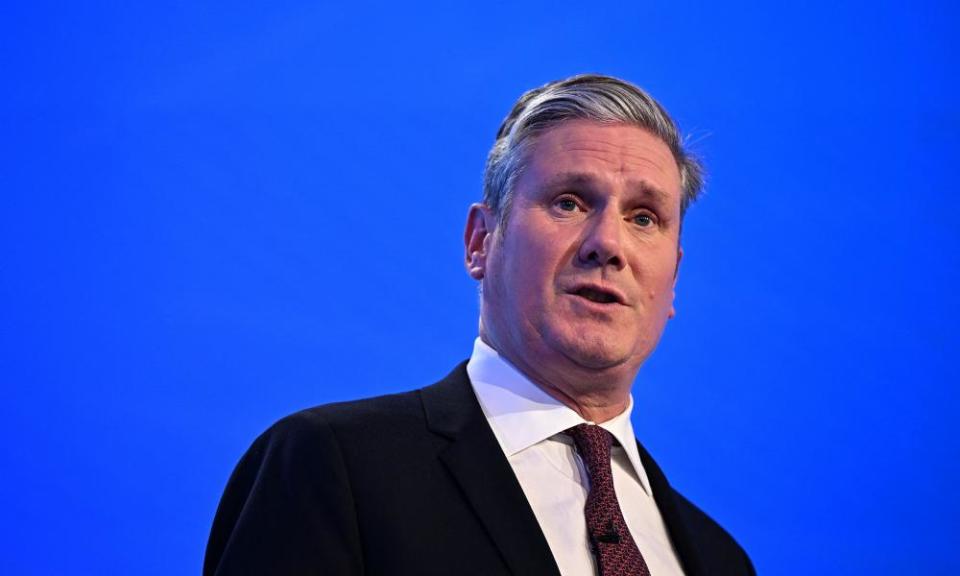Why would Labour want to sideline left-leaning candidates?

Owen Jones is right. Millions of us in the UK and, moreover, in the Labour party, support the platform that leftwing candidates represent (If Labour’s leadership is hobbling internal candidates, is it fit to run a democracy?, 29 November). Most of us who voted for Keir Starmer in the leadership contest actually thought he did too; after all, his 10 pledges included “common ownership of rail, mail, energy and water”, and the defence of free movement.
What makes the “manipulation of selection procedures” so ridiculous is not simply that it is anti-democratic, but that it is electorally unnecessary and misguided. Support for leftwing policies such as nationalisation and redistribution is “at record levels”, as a recent Guardian editorial said (22 November).
Starmer, with his Tory-lite policies and his award from the rightwing Spectator magazine, is clearly more intent on showing himself as the tough leader who purged the party of the left, rather than the empathic politician who transformed British society. After more than a decade of unnecessary austerity, the country is ripe for change, fed up with obscene pay and widening tax gaps, ever increasing inequality and downright unfairness. A politician who fails to see this is as out of touch as his Tory counterparts.
Bernie Evans
Liverpool
• Owen Jones is right to question how some Labour party candidates are being selected, but he omits important context. When Jeremy Corbyn became leader, the party saw an upsurge in members from fringe far-left groups. Rules were changed to make it easier to deselect MPs.
After Corbyn led the party to its worst defeat since 1935 and Keir Starmer took control, many of those people departed but others remained and seemed to spend more time criticising Labour than the Tories. It does not seem unreasonable for the current leadership to check the calibre of potential candidates and exclude those who have a history of attacking the party.
However, when the dust has settled, the Labour party should review the lived experiences of its candidates. I expect that people from minority or working-class backgrounds may not be well represented among them.
Warren Brown
Ilkley, West Yorkshire
• Owen Jones seems to have a very different opinion from Keir Starmer and the national executive committee (NEC) of what makes the “best” candidate. Any prime-minister-in-waiting would look at the factions on the Tory benches and endeavour to avoid having to cope with a similar situation.
Both the Tory and Labour parties claim they are a “broad church”, but therein lies governmental weakness in pursuing its policies. Compromise with extremist blocs has to be reached and three-line whips imposed. But maverick individuals such as Jeremy Corbyn ignored the whip many times during the Blair administration. Jones’s “best” candidates have a strong smell of Islington North – politicians with strong beliefs who could well put those beliefs before the policies of a newly elected Labour government or Labour-led coalition.
Much simpler to ensure your candidates’ opinions conform as closely as possible to your own, or at least that the candidate is amenable to negotiation. Those will be the best candidates in the eyes of Starmer and his NEC.
Alan Page
Dunblane, Stirling
• Have an opinion on anything you’ve read in the Guardian today? Please email us your letter and it will be considered for publication.

 Yahoo Movies
Yahoo Movies 